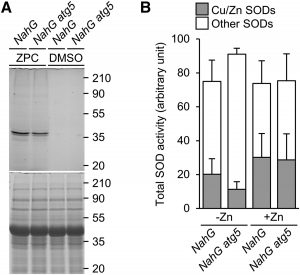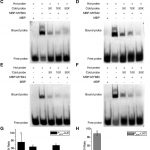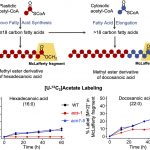Autophagy Maintains Zinc Pools under Zinc Deficiency
Zinc (Zn) is a metallic element that is essential for all living organisms. Zn serves as a catalytic or structural cofactor in a large number of  enzymes including alcohol dehydrogenase, superoxide dismutase (SOD), and regulatory proteins such as transcription factors containing Z-finger domains. Accordingly, Zn deficiency can be a serious agricultural problem. Autophagy, a major intracellular degradation system in eukaryotes, plays important roles in nutrient recycling under nitrogen and carbon starvation. However, the relationship between autophagy and deficiencies of essential microelements remains poorly understood, especially in plants. Using various cell biological, biochemical, histochemical, and physiological methods, Shinozaki et al. (10.1104/pp.19.01522) have analyzed the phenotypes of autophagy-defective plants (atg mutants) under conditions of low Zn. The atg mutants failed to grow and developed accelerated chlorosis under low Zn. Autophagy was also induced under conditions of low Zn in wild-type plants whereas various organelle proteins accumulated to high levels in atg mutants under the same conditions. Additionally, the amount of free Zn2+ was lower in atg mutants than in control plants. The levels of hydroxyl radicals in chloroplasts were also elevated, and the levels of superoxide were reduced in atg mutants under conditions of low Zn. These results imply that the photosynthesis-mediated Fenton-like reaction, which is responsible for the chlorotic symptom of low Zn, is accelerated in atg mutants. Together, these results indicate that autophagic degradation plays an important role in maintaining Zn pools to increase Zn bioavailability and maintain reactive oxygen species homeostasis under low Zn conditions in plants.
enzymes including alcohol dehydrogenase, superoxide dismutase (SOD), and regulatory proteins such as transcription factors containing Z-finger domains. Accordingly, Zn deficiency can be a serious agricultural problem. Autophagy, a major intracellular degradation system in eukaryotes, plays important roles in nutrient recycling under nitrogen and carbon starvation. However, the relationship between autophagy and deficiencies of essential microelements remains poorly understood, especially in plants. Using various cell biological, biochemical, histochemical, and physiological methods, Shinozaki et al. (10.1104/pp.19.01522) have analyzed the phenotypes of autophagy-defective plants (atg mutants) under conditions of low Zn. The atg mutants failed to grow and developed accelerated chlorosis under low Zn. Autophagy was also induced under conditions of low Zn in wild-type plants whereas various organelle proteins accumulated to high levels in atg mutants under the same conditions. Additionally, the amount of free Zn2+ was lower in atg mutants than in control plants. The levels of hydroxyl radicals in chloroplasts were also elevated, and the levels of superoxide were reduced in atg mutants under conditions of low Zn. These results imply that the photosynthesis-mediated Fenton-like reaction, which is responsible for the chlorotic symptom of low Zn, is accelerated in atg mutants. Together, these results indicate that autophagic degradation plays an important role in maintaining Zn pools to increase Zn bioavailability and maintain reactive oxygen species homeostasis under low Zn conditions in plants.



